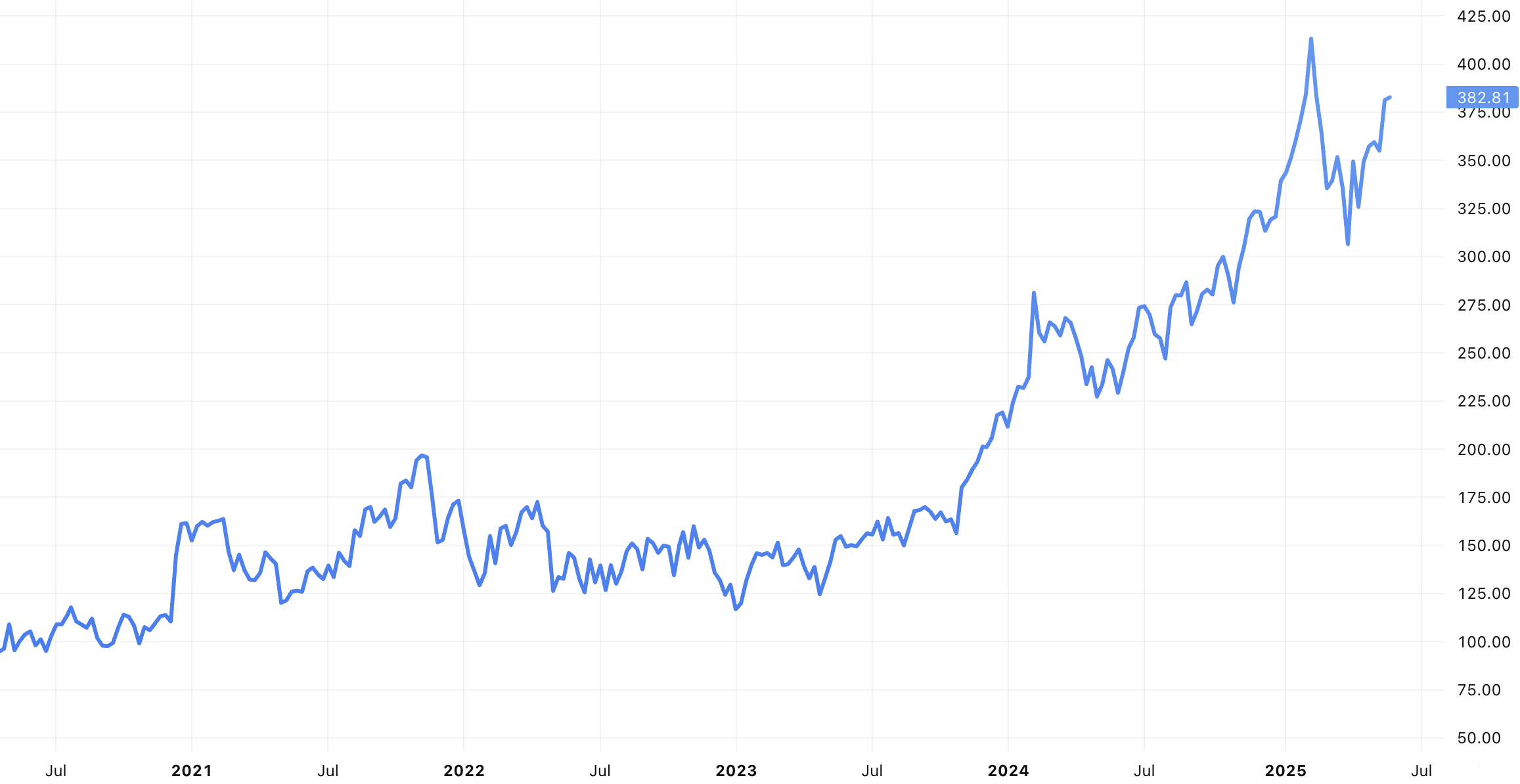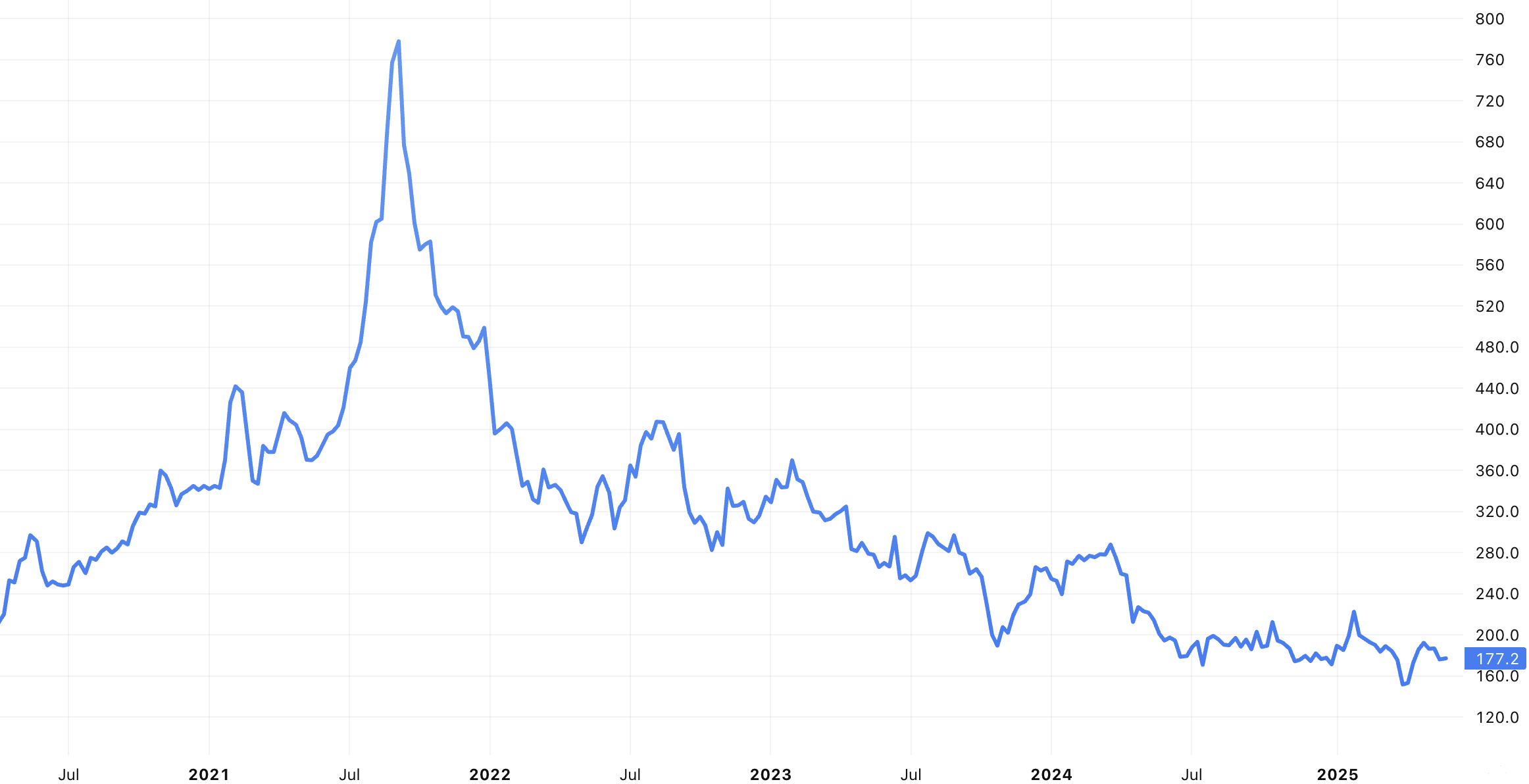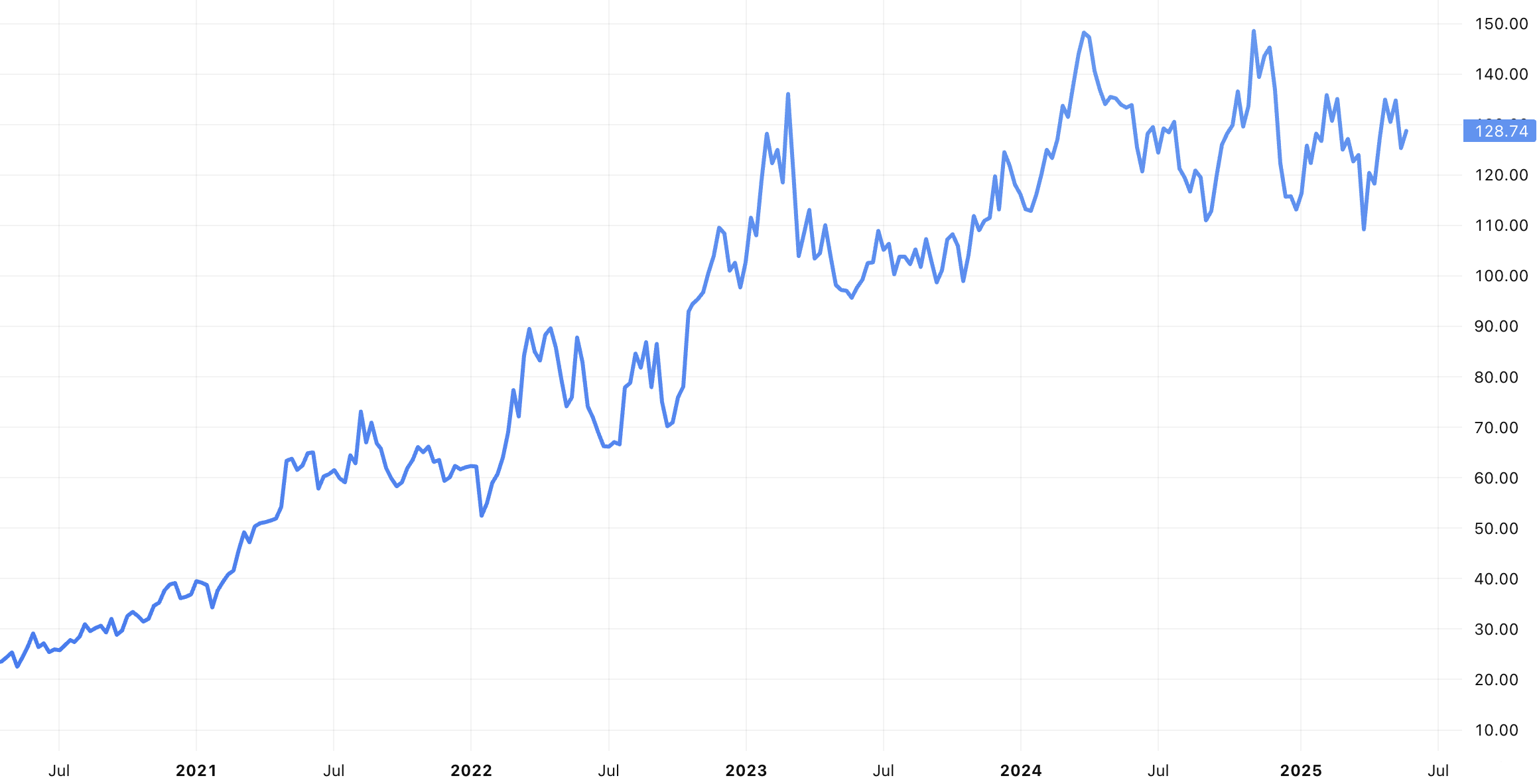“You can’t fool gold”: T. Rowe Price’s Peter Bates on what’s happening in markets right now
This interview was recorded on Friday 23 May 2025.
Few things can sharpen the focus of global fund managers like an unanticipated trade war between global superpowers.
For Peter Bates, Concentrated Global Equity portfolio manager at T. Rowe Price, the subsequent volatility simply reinforces the value of the world’s best companies.
“The best way to handle that volatility is by investing in companies that execute at a high level and have the management bandwidth to flex as the environment around them changes,” said Bates.
“We work very hard to spend time understanding our companies, but it’s also as important to understand the people and the capability of the people running the company.”
Even in this new climate, quality companies with strong products stay at the top.
“People are still going to consume and we are still going to build things and the companies that do those things today aren't really going to change, but companies that are better run are going to be able to flex and adjust their supply chains quicker and more effectively than companies that are less well managed," said Bates.
Striking the right balance
The Concentrated Global Equity fund aims to beat the US-heavy MSCI World ex-Australia Index, which naturally impacts where Bates invests.
“I care about balance, I care about not making binary bets, and for the most part, I'm searching to find the best companies in each geography with an awareness of my benchmark,” he said.
But the dominance of the Mag 7 stocks has added an extra complication to getting that balance right.
“You need to manage your Mag 7 exposure just like you manage a geographic exposure.”
“If I decide I don't want to own any Mag 7, that one decision is going to dictate my performance and I try to avoid doing that.”
“But with that said, today where we sit, I see more opportunities for divergence in performance amongst the Mag 7 than ever before,” said Bates.
He points to the ongoing court cases and DOJ investigations into Apple and Google, as well as the rise of AI, as extant threats to the hegemony of Google in particular.
Google (NASDAQ: GOOGL) is moving from near-monopoly in search to one of many generative search engines competing for the same audience.
“Google has a great AI model in Gemini, but so does ChatGPT, so does Perplexity and so does Grok. As more and more people are using these models to do searches, they are doing less searches on core Google.”
“They have a monopoly with Google Search, they aren't going to have a monopoly with generative search.”
The big risk facing markets
While risks of a recession have abated, Bates flags US debt levels as the one big shadow looming over the markets right now.
With US deficits in the trillions of dollars and Trump’s most recent budget bill potentially exacerbating the issue, investors are getting nervous.
“We've seen bond yields start to come up, and I think the world and our bond buyers are saying, whoa, this is not what I signed up for,” said Bates.
The ongoing bond market jitters have clear implications for equities.
“If bond yields go north of 5%, I struggle to see the S&P 500 continue to trade at 20 times [PE ratio].”
You can’t fool gold
The deficit and bond dramas also help explain the outperformance of gold, and arguably Bitcoin, says Bates.
There is evidence to suggest China is divesting itself of US dollars and instead buying up gold.
“Gold is almost a reserve currency and I think Bitcoin is almost like digital gold,” he said.
“The moves in those currencies are from people wanting a store of value and something that won't be diluted by inflation, which is triggered by massive budget deficits.”
2 growth, 1 value
While Bates is a core manager, he takes a three-pronged approach to finding the best companies.
Prospective stocks are placed into three style buckets: steady growth, disruptive growth and value.
He shares an example of each.
First is CyberArk (NYSE: CYBR), a cybersecurity company that focuses on personnel access management.

Cybersecurity has unfortunately become a growth industry, says Bates, as cyber attacks become more attractive and sophisticated.
“It's a growth industry and it's certainly not cheap, but I think it's a big addressable market that is growing for years to come.”
The second is Sartorius AG (ETR: SRT3), a German pharmaceutical company that produces the equipment used to create biopharmaceuticals, a novel form of drug that is coming to dominate the industry.

“Sartorius is one of four or five companies globally that makes this equipment and they are as close to a pure play as exists. The market cap is too small for its role in this growth industry,” said Bates.
Finally, he cites Steel Dynamics (NYSE: STLD), a US recycled steel company that is naturally a value stock but presents a good opportunity with the ongoing tariff uncertainty.

“They’ve turned a highly volatile fixed-cost business into a more stable spread business where they're buying raw material inputs that fluctuate with the price of steel, but they're doing it in a cost efficient way to capture the spread that exists between recycled steel and new steel,” Bates said.
Watch the full video with Peter Bates above to get more insights into his investing approach and why he picked these stocks.
4 topics
3 stocks mentioned
2 contributors mentioned

